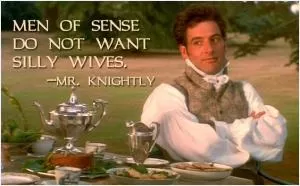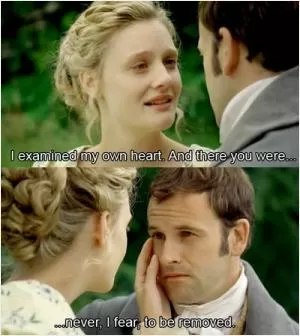We do not look in our great cities for our best morality

We do not look in our great cities for our best morality
In the context of Jane Austen's works, the statement "We do not look in our great cities for our best morality" holds significant weight. Austen's novels often explore the societal norms and values of the English upper class during the Regency era, and she frequently contrasts the moral character of characters from the city with those from the countryside.In Austen's novels, the characters who reside in the great cities, such as London, are often portrayed as being more concerned with wealth, status, and social climbing than with moral integrity. These characters are often depicted as shallow, materialistic, and lacking in true virtue. For example, in "Pride and Prejudice," the city-dwelling characters like Mr. Collins and Lady Catherine de Bourgh are shown to be more concerned with their own social standing and reputation than with being kind, honest, or compassionate.
On the other hand, the characters who come from the countryside or smaller towns are often portrayed as having stronger moral values and integrity. Characters like Elizabeth Bennet and Mr. Darcy in "Pride and Prejudice" or Emma Woodhouse in "Emma" are shown to possess qualities such as honesty, kindness, and humility that are lacking in many of the city-dwelling characters. These characters are often depicted as being more in touch with their own emotions and the needs of others, and they are more likely to act in accordance with their own moral compass rather than societal expectations.
Austen's novels suggest that true morality is not necessarily found in the grandeur and sophistication of the city, but rather in the simplicity and authenticity of the countryside. The characters who come from rural settings are often portrayed as having a deeper connection to nature, community, and tradition, which in turn shapes their moral character. Austen's works highlight the idea that true virtue is not dependent on wealth or social status, but rather on one's actions, intentions, and values.












 Friendship Quotes
Friendship Quotes Love Quotes
Love Quotes Life Quotes
Life Quotes Funny Quotes
Funny Quotes Motivational Quotes
Motivational Quotes Inspirational Quotes
Inspirational Quotes